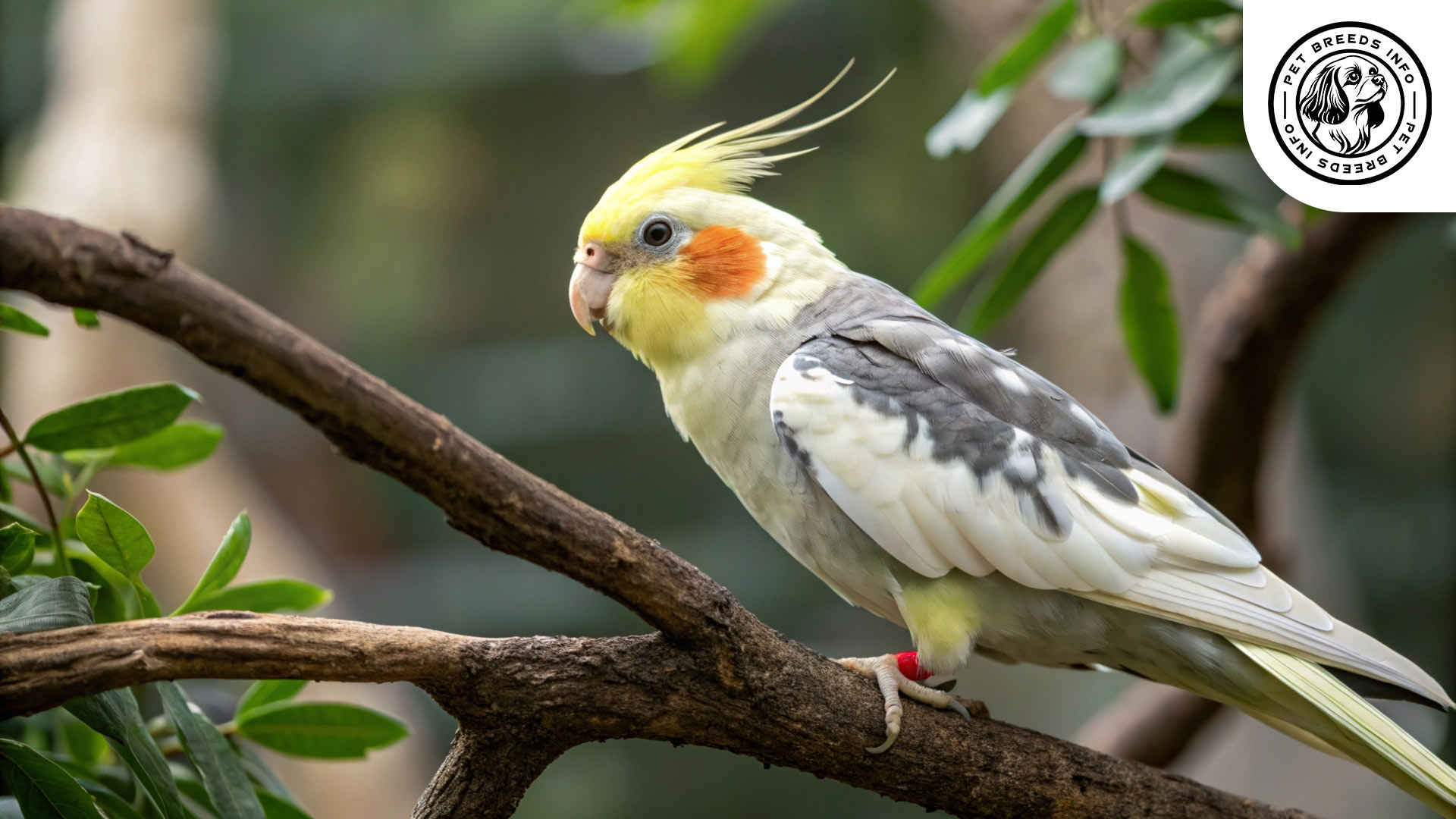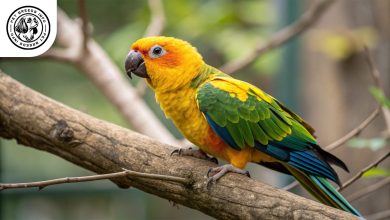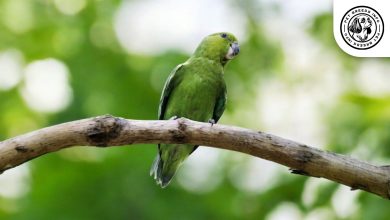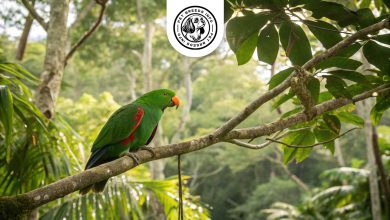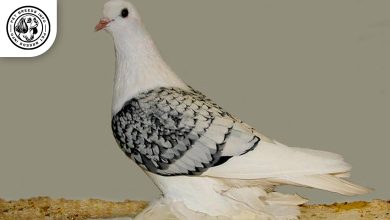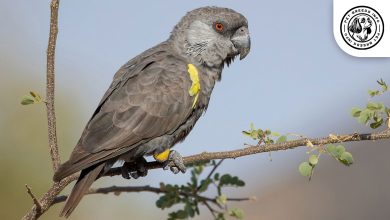Pied Cockatiel Brid: Personality, Lifespan, Food & Care
General Introduction of the Breed
The Pied Cockatiel (Nymphicus hollandicus) is a beautiful and popular variant of the traditional Cockatiel, known for its unique feather patterns. Originating from Australia, this bird is a favorite among pet enthusiasts due to its friendly nature and striking appearance.
Pied Cockatiels were developed through selective breeding to enhance their distinctive markings. While the Cockatiel species has existed for centuries, the Pied mutation was first discovered in the 20th century and has since become a beloved choice among bird owners.
Table of Contents
Physical Characteristics
Pied Cockatiels are small to medium-sized birds, with an average length of 12 to 14 inches from head to tail. They typically weigh between 80 to 120 grams.
Their most distinguishing feature is their unique feather pattern. Unlike standard Cockatiels, Pied Cockatiels display patches of yellow, white, and gray in an irregular pattern. No two birds have the same markings, making each one unique.
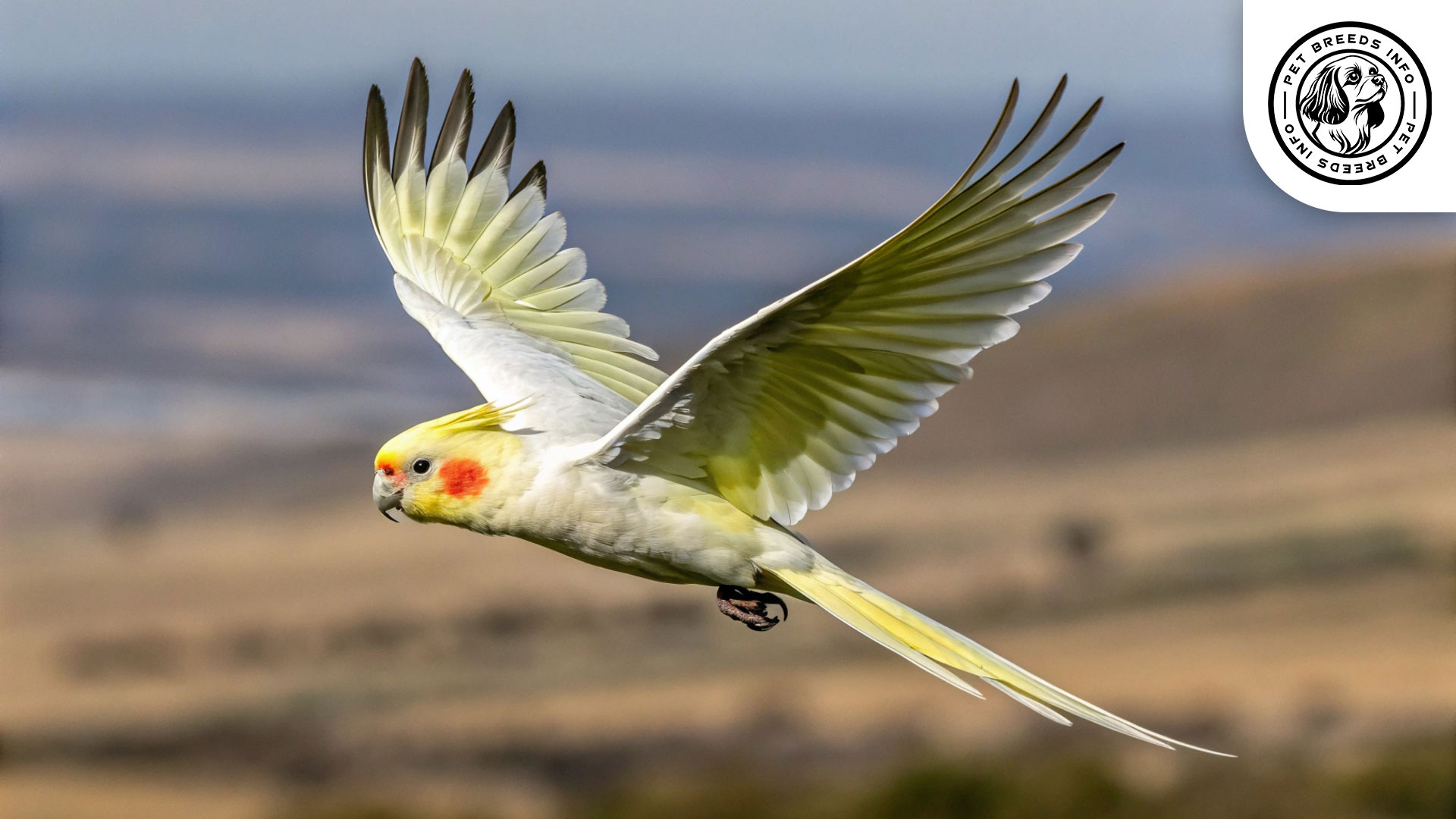
They have round, dark eyes that express curiosity and intelligence. Their crests are prominent and serve as a visual indicator of their mood, standing upright when the bird is excited or relaxed when calm.
Their beak is small and curved, suited for cracking seeds and chewing soft foods. Their tails are long and tapered, often containing mixed colors that match their overall plumage.
Read More: Spanish Timbrado Canary
Personality and Temperament
Pied Cockatiels are known for their affectionate and playful personality. They form strong bonds with their owners and enjoy interaction.
They are intelligent and capable of learning simple commands and tricks. Many can mimic sounds, whistles, and even words with enough training.
These birds have moderate energy levels, requiring daily mental and physical stimulation. They enjoy climbing, exploring, and playing with toys.
Pied Cockatiels are social and thrive on companionship. They get along well with family members, including children, and can coexist with other birds if properly introduced.
They are sensitive to their surroundings and may become anxious in an overly noisy or stressful environment.
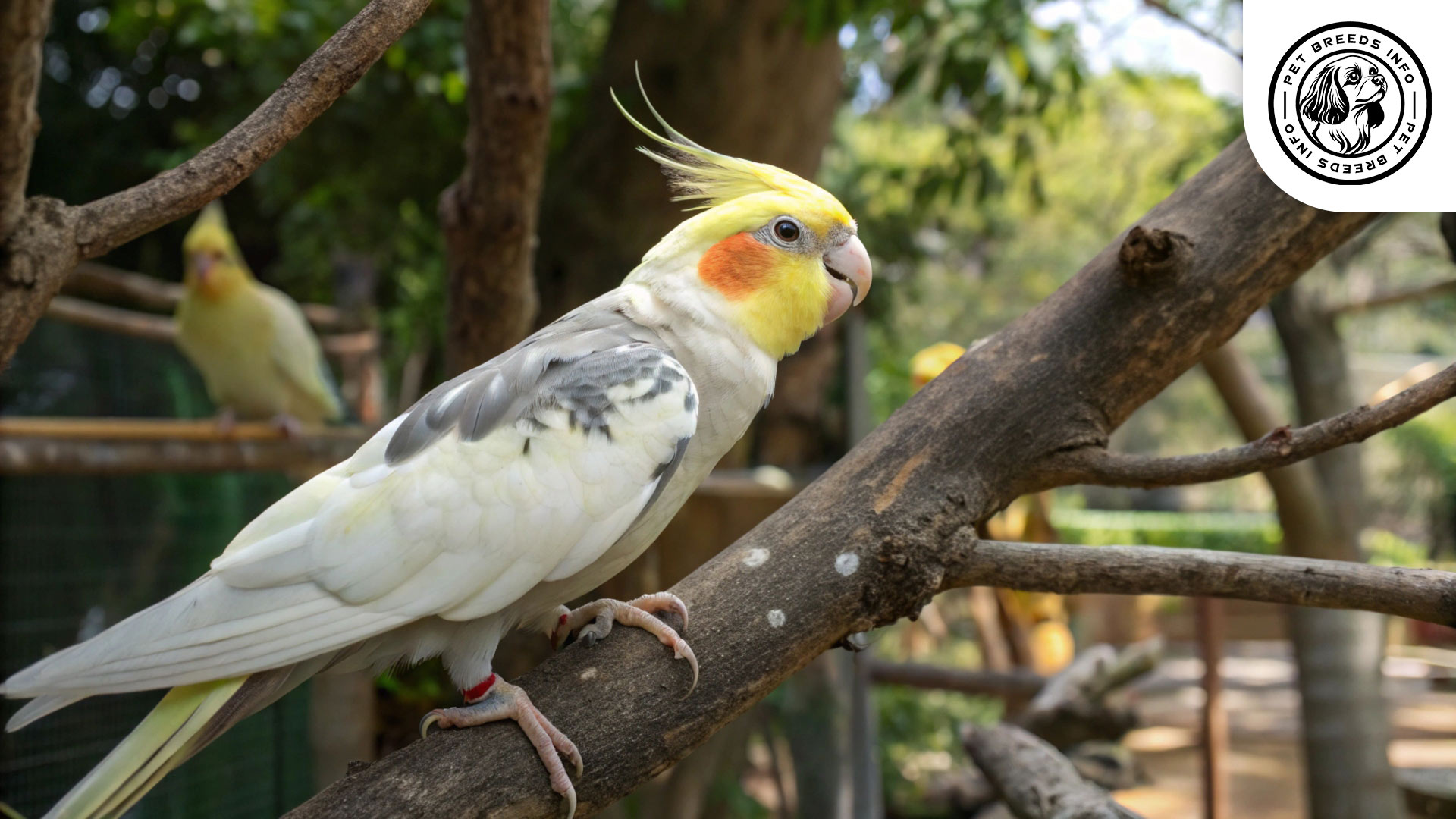
Care and Maintenance Requirements
Pied Cockatiels need daily exercise and time outside of their cage to stretch their wings and explore their environment.
They are well-suited for apartment living but require a spacious cage with enough room for movement and toys for enrichment.
Grooming is relatively simple. Regular preening keeps their feathers in good condition, but occasional misting with water can help with feather health. Their nails and beak should be monitored and trimmed when necessary.
They are sensitive to extreme temperatures, so it’s important to keep them in a stable indoor environment away from direct sunlight and drafts.
Routine hygiene includes cleaning their cage regularly, providing fresh water daily, and checking their feet and beak for abnormalities.
Diet and Nutrition
Pied Cockatiels require a balanced diet consisting of high-quality pellet food, fresh vegetables, fruits, and seeds in moderation.
Leafy greens, carrots, and bell peppers make excellent additions to their diet. Avoid feeding them avocado, chocolate, caffeine, and high-sodium foods, as these can be toxic.
Ensure they have access to fresh water daily. Treats like millet can be offered occasionally but should not replace a balanced diet.
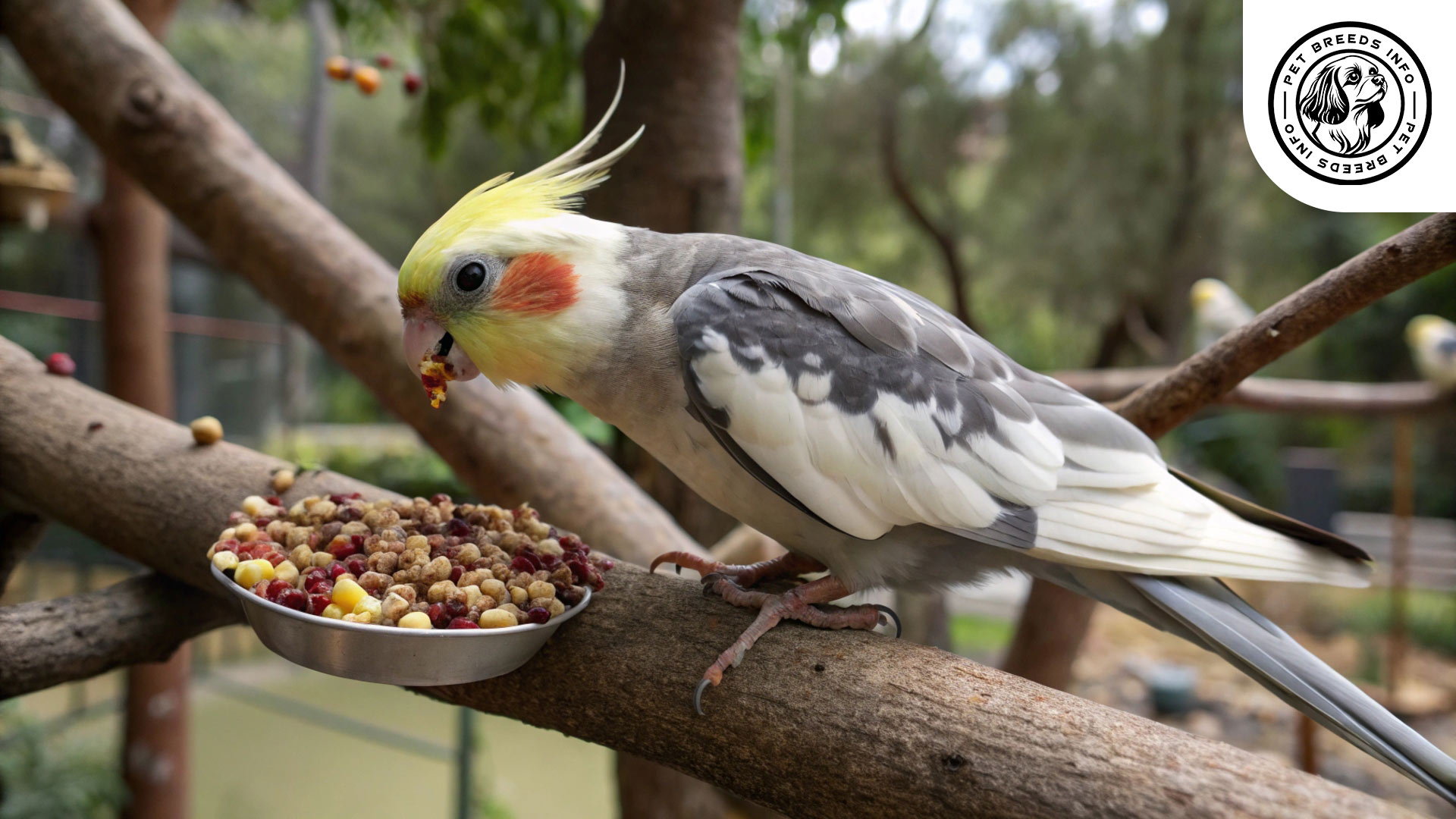
Health and Common Medical Issues
Pied Cockatiels are generally healthy but may be prone to respiratory infections, feather plucking, and obesity if not cared for properly.
Regular vet check-ups, a proper diet, and maintaining a clean living environment help prevent most health issues.
On average, they live between 15 to 25 years, but some have been known to exceed this with excellent care.
Ensure they receive recommended vaccinations and parasite prevention if required.
Read More: Slender-billed Cockatoo
Training and Behavior Management
Pied Cockatiels are relatively easy to train due to their intelligence and social nature. Positive reinforcement methods, such as treats and praise, work best.
Begin training early and incorporate interactive activities like whistling, stepping up onto a finger, and mimicking sounds.
Consistency is key when teaching good behavior. Avoid punishment, as it can lead to fear and trust issues.
Interaction with Other Animals and Humans
These birds are highly affectionate and enjoy human interaction. They thrive in family environments where they receive ample attention.
They get along well with other birds when introduced properly, but supervision is necessary when housing them with larger or aggressive species.
Pied Cockatiels are ideal for individuals or families who can dedicate time to their social needs.
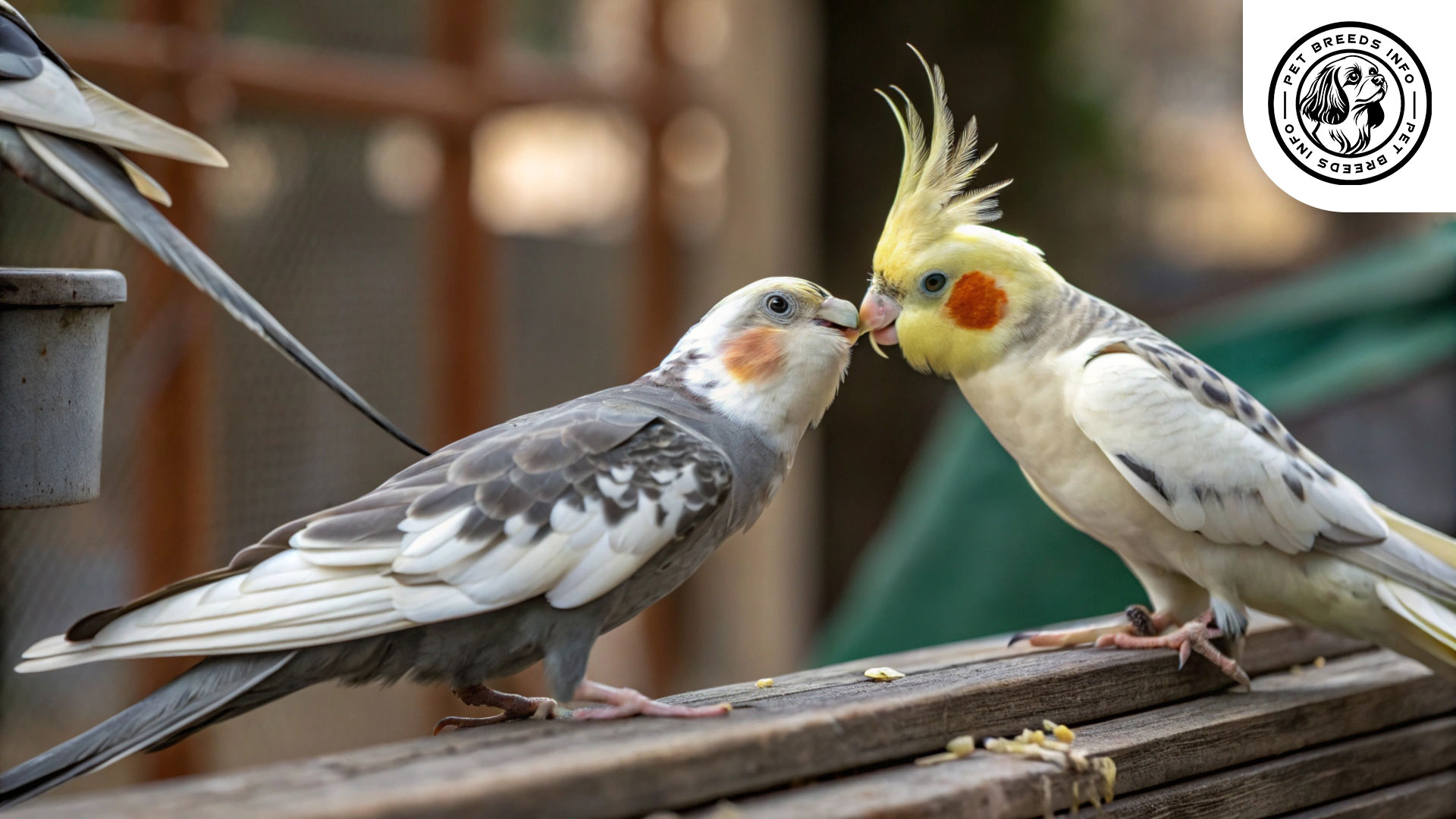
Price and Availability
The price of a Pied Cockatiel varies depending on the breeder and location. They typically range from $100 to $250.
It’s important to purchase from reputable breeders or adopt from rescue centers to ensure the bird is healthy and ethically sourced.
Prospective owners should consider the long-term commitment, as Cockatiels require years of care and attention.
Conclusion and Final Thoughts
Pied Cockatiels are an excellent choice for bird lovers looking for a playful and affectionate companion.
They are well-suited for attentive owners who can provide social interaction, training, and proper care.
Before choosing a Pied Cockatiel, consider the commitment required in terms of time, diet, healthcare, and companionship.
With the right care, they make wonderful lifelong pets, bringing joy and entertainment to any household.
Read More: St. Vincent Amazon
FAQ
What is a Pied Cockatiel known for?
They are known for their unique yellow, white, and gray feather patterns and their friendly nature.
How big do Pied Cockatiels get?
They are small to medium-sized birds, typically 12 to 14 inches long and weighing 80 to 120 grams.
Are Pied Cockatiels good at talking?
Yes, they are intelligent and many can learn to mimic sounds, whistles, and even some words.
How long do Pied Cockatiels typically live?
With good care, they usually live between 15 to 25 years.
Do Pied Cockatiels need a lot of social interaction?
Yes, they are social birds that thrive on companionship and enjoy interacting with their owners and families.
